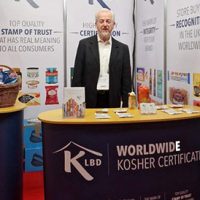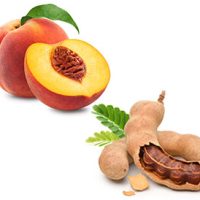The Natural & Organics Show (NOPEX) will be taking centre stage once more at…

Plastic Packaging vs Biodegradable
The waste from packaging is something which we fight on a daily basis. Over the past fifty years or so, it has become commonplace to use cheap plastic packaging in order to ship products. Such plastic is cost-effective but has created several environmental (and health) concerns over the years that governments and businesses are keen to address.
An alternative has appeared as a result of these efforts, known as biodegradable plastic. Such packaging is able to decompose thanks to living organisms (typically bacteria) as a result of biodegradable additives, which are added to the plastic in order to improve the process of degradation of polymers. These additives actually attract the organisms which break the plastic down.
So, what is the difference between the more traditional plastic and this new biodegradable alternative? Are there any drawbacks to this new plastic?
Conventional Recycling
As part of a green incentive, many households and companies make an effort to recycle on a daily basis. This involves collecting together waste plastic in order to create new, useful, products at the end of the recycling process.
The process of recycling involves sorting through the plastic, determining the plastic by its type and also colour to prevent any contamination throughout the process. Machines can detect the resin content of the plastic in order to sort it in the most efficient way possible. Following this, the plastic is then shredded to make sorting between heavier and lighter plastics easier. Once this is completed the plastic will be cleaned, then melted into tiny components known as pellets.
It is this pellet which is then sold on and transported to companies across the world in order to create new packaging in all shapes and forms.
Perhaps as a reflection of the growing awareness surrounding recycling and the environmental impact of plastic, the rate of recycling has increased every year from 1990. Government incentives have also helped to increase in both home and business recycling across the country.
Biodegradable as an Alternative to Recycling
Recently, biodegradable plastic has become a much-championed alternative to traditional plastic as it would negate the need to recycle. Having a plastic which can degrade over time, naturally, is a preferable option for many businesses as it makes the waste disposal process much simpler. Examples of this type of plastic include polyanhydrides, polyvinyl alcohol, and cellulose esters. On the face of it, they seem to be the perfect solution to the question of plastic recycling.
However, there is also a risk when it comes to biodegradable plastics and the current recycling process. A biodegradable plastic that enters the current recycling process has the potential to disrupt it significantly, as adding the biodegradable and traditional plastics together changes the composition of the end result. This then is difficult to use as it may not reform correctly.
This is a significant problem as it could cause issues for recycling as a whole in the long run.
Overall, recycling is a trend that seems to be increasing on a year by year basis. Finding alternatives to conventional plastics is also a newly forming trend, as people are determined to try and bypass the harmful potential that comes from plastics in landfills. Whether or not biodegradable plastic is the alternative needed to help the environment, or recycling is still the best solution, still remains to be seen.
With KLBD Kosher Certification, your consumers are guaranteed to buy from a reliable source that ensures all packaged food has completely followed all kosher and kosher-relevant cross-contamination requirements. For more information on how you can kosher certify your products, you can get in touch by giving KLBD Kosher a call on +44 (0) 20 8343 6255.




